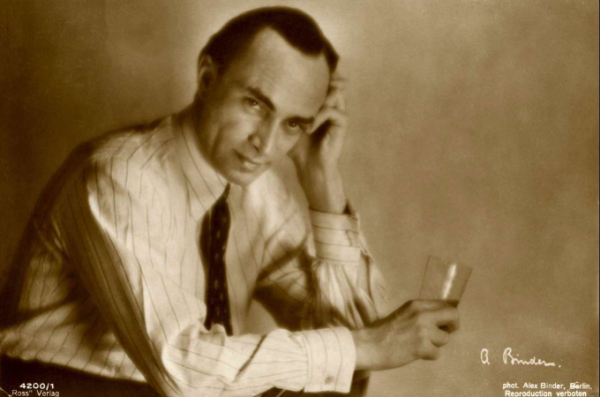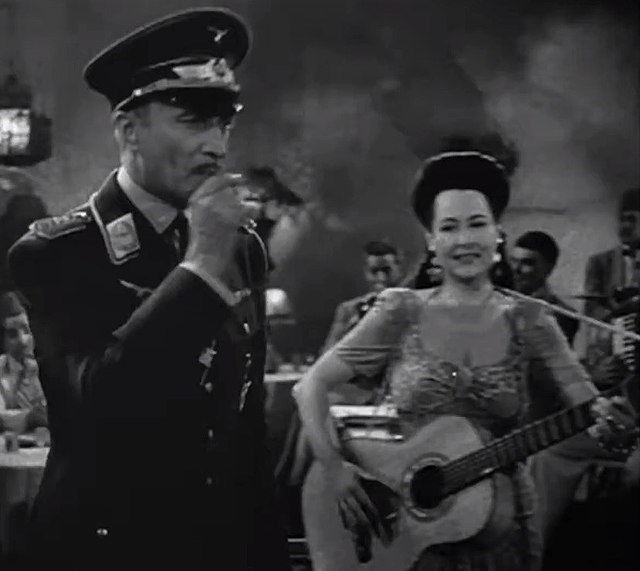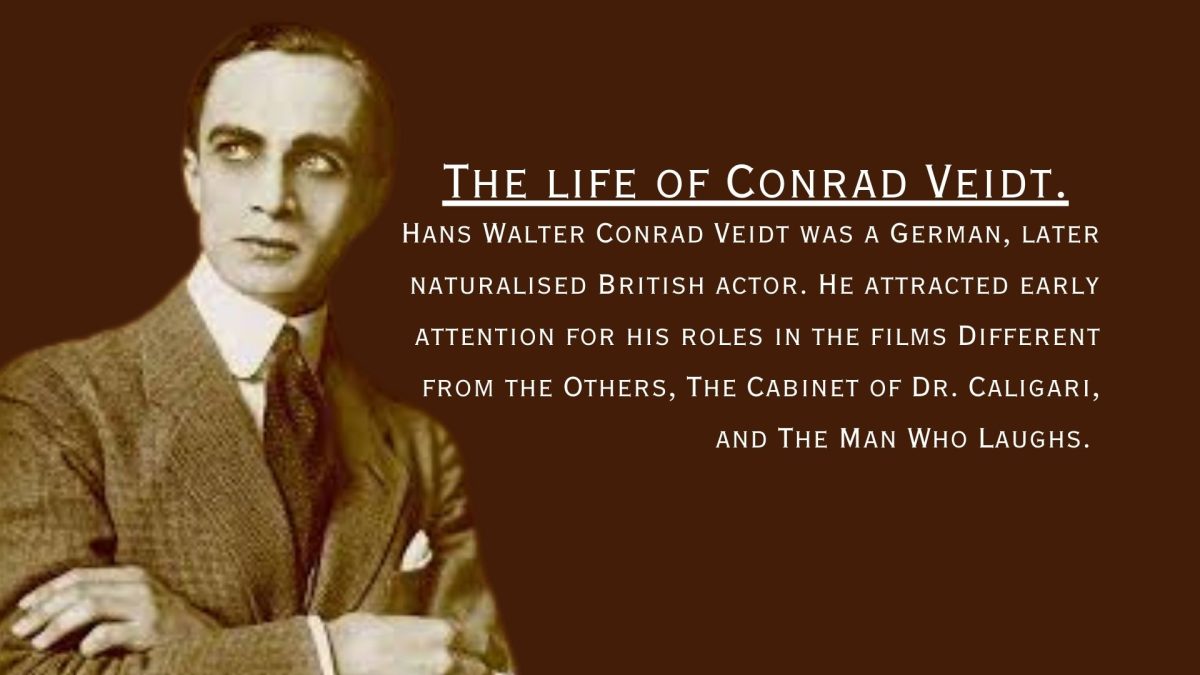Born on January 28th, 1893, in Berlin Germany, and named Hans Walter Conrad Viedt, hating the number 17, pudding, and interviews, and loving golf, fast cars, and pastries. This European actor would live on to inspire many films, and comics, star in the first-ever known pro-LGBTQ+ film, and receive letters for his good deeds in WWII.

Conrad Viedt by Alex Binder
Veidt was unable to finish school as a poor student. Dropping out during his senior year, he was the last of his other 13 classmates to finish. His first connection with acting would be in 1915 when he acted in a school Christmas play which received a lot of criticism but amongst the crowd of hate, you could hear the only praise would be for none other than him. With the rise of World War 1 Viedt would enlist and take a pause for acting. Veidt began his film career as an actor in the late 1910s. His first film would be Der Weg Des Todes (sadly a lost film) released in 1917, but the launch of his career would be Cesare the Somnambulist in ¨The Cabinet of Dr. Caligari¨ he would go on to star in many horror films such as “The Man Who Laughs,” “The Hands of Orlac,” and “Eriee Tales,” this granted him the nickname “Demon of the Silver Screen.”
By the 1930s, Conrad had already become a star known globally, and he was even in consideration to play Count Dracula in the title role, the part that famously went to the then-unknown Hungarian actor Bela Lugosi. But his reason for rejection was that he feared the accent in his voice wouldn’t fit into the new era of cinema, “talkies,” which was the transition to sound, so instead, he moved back to Germany to make movies in his mother language. Unfortunately, the Nazis had already begun to take over Germany at this time but Veidt wouldn’t let that stop him, he was extremely anti-nazi considering his wife at that time was Jewish, and with his stardom and money he would help the kids of London and help his ex-wife escape Germany to Switzerland, however, he was on a hit-list and was held captive and tortured until he did their salute. In shame, he agreed but once freed, he would “team up” with German actress Marlene Dietrich to speak up on the current war and inform the world of the cruelty and evilness that were the Nazis.

Public Domain Photo: Conrad Veidt as Major Heinrich Strasser in Casablanca.
By the 1940s Conrad was back in the spotlight starring in various A-list movies. In 1942 he would star in his last film, the critically acclaimed, “Casablanca,” alongside Humphrey Bogart, Ingrid Bergman, and Paul Henreid. Despite being billed fifth Viedt would be paid the most out of the whole cast. In 1943, when playing golf with his friend, Viedt suddenly collapsed and died of a heart attack at age 50. He was cremated and put to rest in Golders Green Crematorium, located in the United Kingdom in London, where he remains to this day.








